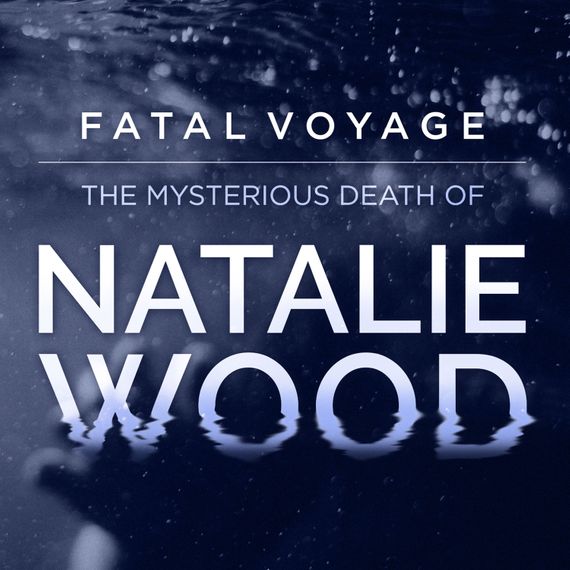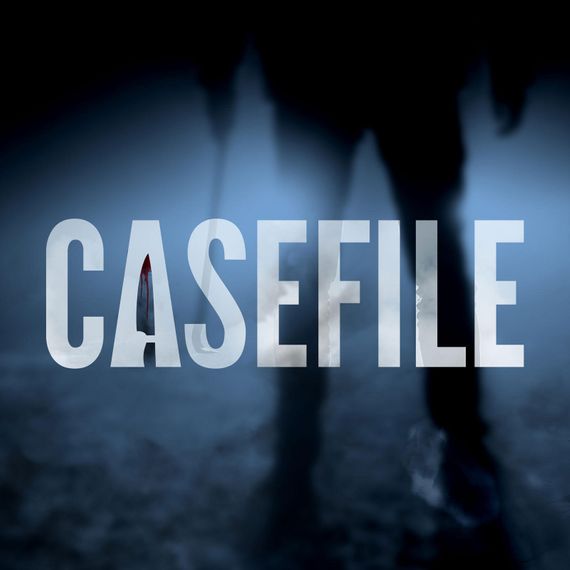
The true-crime podcast universe is ever expanding. We’re here to make it a bit smaller, a bit more manageable. There are a lot of great shows and each has a lot of great episodes, so we want to highlight the exceptional, the noteworthy. Each week for the month of October, our crack team of podcast enthusiasts and specialists will pick their favorites.
Serial: “Miss Demeanor, Meet Mr. Lawsuit”
If there’s one thing I’ve never loved about Sarah’s Koenig’s narrative style, it’s that occasional sense of naïveté that sometimes sneaks its way in to her interviews. Think of her incredulity in Serial’s first season, for instance, when Innocence Project lawyer Deirdre Enright suggests there were racial overtones tainting the investigation of Adnan Syed. When I started listening to “Miss Demeanor, Meet Mr. Lawsuit,” I feared I’d be infuriated by that same “huh, really?” sensibility when I heard her ask a civil-rights lawyer whether his client — a black man brutally beaten by an off-duty cop — would have a better chance getting justice using official department channels rather than suing the city. I shouldn’t have feared, however, because the queen of narrative journalism is back in top form this season. Listening to her awkward interaction with Detective Steve Loomis, a “bald-headed, meaty-fisted” and openly racist defender of bad shootings, reminds me why I fell in in love with this podcast. The scenes are immersive, the journalism is solid. And that same wide-eyed quality of Koenig’s works here, making the most difficult material not just an easy listen, but, dare I say, a fun one. —Rebecca Lavoie
Last Seen: “Not a Bunch of Jamokes”
The case files read like a rejected Ben Affleck screenplay: In the early morning hours of March 18, 1990 — the day after St. Patrick’s Day, no less! — two men posing as Boston police officers entered the Isabella Stewart Gardner Museum. After tying up the two guards on duty, they made off with 13 pieces of artwork — including five Degas, three Rembrandts, and a Vermeer — in many cases, savagely slicing the canvases straight out of their frames. Today, the haul is valued at some $500 million and is considered the world’s largest unsolved art theft. Yet theories abound — everything from inside jobs to mob directives — spurring endless speculation and more than one investigative podcast. In February, documentarians Tim Pilleri and Lance Reenstierna (of “Missing Maura Murray” fame) launched their podcast Empty Frames, and just last month, WBUR and the Boston Globe partnered for the slickly produced Last Seen. Hosted by WBUR’s Kelly Horan and Jack Rodolico (with frequent assists from the Globe’s Pulitzer Prize–winning reporter Stephen Kurkjian, who’s been on the Gardner beat for 20 years), Last Seen is the result of a yearlong investigation, featuring never-before-heard testimony from key players and what producers are touting as “unprecedented access to case files.” Episode three, “Not a Bunch of Jamokes,” (a direct quote from a local defense attorney sizing up the perpetrators’ acumen) is where the case begins to widen beyond the walls of the museum. Horan and Rodolico introduce us to TRC Auto Electric, an auto body shop in Dorchester run by a man named Carmello Merlino as a front for his cocaine-trafficking business. TRC is the hub for much of the criminal activity in the area, but could it have been where the plan to rob the museum was hatched? Like most things involving the Gardner heist, the answer is, it’s complicated. And infinitely interesting. —Amy Wilkinson
Listen: Spotify | Apple | Website
Happy Face: “Childhood”
True-crime fans are often accused — and rightfully so — of being more interested in gruesome details about crimes and the people who commit them than in their victims or survivors. On the other hand, there are plenty of people related to murderers who would prefer to be left out of the headlines, which is absolutely their right. (Can we please leave the Golden State Killer’s ex-fiancée alone?) What makes Happy Face especially interesting in the current wave of true-crime media is that it’s co-hosted by Melissa Moore, who revealed in a 2009 memoir that she’s the daughter of serial killer Keith Jesperson. Moore seems to be genuinely interested in interrogating and destigmatizing what it means to be related to a murderer; she also hosts the Lifetime series Monster in My Family. In this first episode, TV producer and co-host Lauren Bright Pacheco interviews Moore about her life, starting with the more mundane details of Moore’s childhood — if mundane includes your father nearly strangling a kitten to death and oversharing details about his sex life. These anecdotes are woven together with details about Jesperson’s crimes, as well as an interview with her mom, Rose Hucke, about life with her ex-husband. Many listeners will already be familiar with the Happy Face murders, but the format of the podcast and Moore’s POV makes this more than just another crime podcast. —Jenni Miller
Listen: Spotify | Apple | Website
Fatal Voyage: The Mysterious Death of Natalie Wood: “Justice for Natalie”
The entire 12-part mini-series follows the infamous death of actress Natalie Wood. It’s dripping in Hollywood scandal, and not just because of Wood’s fame. If you’re not familiar with the case, here’s a quick rundown: Wood died on November 29, 1981, in Santa Catalina Island, California. She was on a boat with her husband, actor Robert Wagner, and their friend, actor Christopher Walken, when under mysterious and indeterminate circumstances she entered the water and drowned. The moments that led up to her death are the focus of the podcast, and this episode focuses not only on the case’s legacy but also specifically on Wagner’s (almost) unbelievable answer to the simple question, “Did you kill Natalie?” If you think you knew everything about the case you are completely wrong. —Hillary Nelson
They Walk Among Us: “Season 3, Episode 14”
When I first subscribed to “They Walk Among Us” (“a podcast dedicated to U.K. true crime”), I assumed the bulk of the cases would center in and around London. (After all, what nefarious deeds couple possibly transpire in a place called Upton Snodsbury?) But as I quickly learned, the suburbs of England, Scotland, Wales, and Northern Ireland can be just as dark-hearted as those in the U.S. Case in point: the murder of Georgia Williams, a teenager living in the small English town of Wellington. To be clear, the episode is hardly a whodunnit: The minute you hear that 17-year-old Williams was invited for a photoshoot at 23-year-old friend Jamie Reynolds’s home — a photo shoot in which a faux hanging would be staged — you can probably guess what transpires. But what also emerges is a chilling (and timely) portrait of a man obsessed with violence against women and whose earlier attempts at assault had been merely shrugged off by the authorities. Further evidence of his perverse fantasies: Upon Reynolds’s eventual arrest for Williams’s murder, scores of sadistic images were found on his hard drive, including several in which he had Photoshopped nooses around the necks of female acquaintances. It’s just one more (somehow still necessary!) reminder that we not only need to believe survivors, but do something about what they tell us. —Amy Wilkinson
Listen: Spotify | Apple | Website
Casefile: True Crime: “The Toy Box (Part 2)”
This week’s episode of Casefile is the second in a three-part series about David Parker Ray’s crimes, which involve the sort of sexual brutality that would make de Sade himself grow faint. There aren’t enough trigger warnings in the world for the Toy Box Killer and his cohorts — that’s not a dare, that’s a fact. In contrast to its ghoulish subject, Casefile is somber and thorough, almost clinical, and its anonymous narrator has a soothing demeanor and gentle Australian accent. There’s even a warning at the beginning of every episode that encourages listeners in distress to contact their local crisis center. I’m not going to pretend that my interest in true crime is anything but sheer morbidity mixed with a sort of existential terror, but sometimes folks can get a little too flippant about gruesome matters. (I have such a love-hate relationship with The Last Podcast on the Left, don’t @ me.) But Casefile is well-written and has an interesting narrative structure, which starts with the discovery of an escaped victim and then goes back to unravel the crimes and ensuing investigations. Even though I’m familiar with the story, I’m on tenterhooks waiting for the last installment. Be be warned: With each episode clocking in at over an hour each, you might need a Silkwood shower if you listen to them all at once. —Jenni Miller
Listen: Spotify | Apple | Website
Uncover: Escaping NXIVM: “The Reckoning”
The CBC’s latest serialized true-crime project dropped in the form of a mini-series looking at NXIVM, the creepy, MLM/sex cult mash-up whose principal figures (including Smallville actress Allison Mack) are now facing serious charges. The seven-episode series is solid, if a bit narratively uneven, mostly relying on recorded conversations between Very Likable Canadian Reporter Josh Bloch and his childhood friend, actress Sarah Edmondson, a recent NXIVM escapee. While the series builds its story around Sarah’s tearful recollections of being branded (literally) and blackmail-indoctrinated into a faux-feminist web of what essentially sounds like a super lazy rip-off of Scientology, “The Reckoning” delivers a delightfully twisty ending. Josh turns the tables on Sarah, challenging her to weigh her own culpability in recruiting others into NXIVM and making a lot of money off the very thing she’s now known for taking down. I was left unsettled by that encounter, not just because of what Sarah did or didn’t say, but because Josh, our affable guide WHO IS ALSO SARAH’S FRIEND, was so willing to go there. Despite one questionable piece of nose-blowing audio, I pretty much loved every minute. (And can we please give a nod to that amazing Battlestar Galactica-esque podcast theme music?) —Rebecca Lavoie
Pretend Radio: “The Prophet”
So I’m from the South, where megachurches buy neighborhoods and grocery stores and movie theaters just to create larger parking lots. The megachurch near me was casually referred to as 6 Flags Over Jesus. (Also, I should go ahead and state that I do not believe my hometown church is a cult in any way, but being an outsider, I was always fascinated by what happened inside.) So I was immediately intrigued by Pretend Radio’s new series about the Word of Faith Fellowship in Spindale, North Carolina, and its story of a church turned cult. The new episode focuses on the pastor and cult leader, Jane Whaley. Those who managed to leave the cult have labeled her a “ruthless leader.” So who is she, and what led her here? The audio of John Cooper’s — a former member who is at the center of the original investigation — experience of what the church calls “blasting prayer” is up there as one of the scariest things I’ve ever heard. This is at the top of my list for most exciting new true-crime series for this fall. —Hillary Nelson
Listen: Spotify | Apple | Website
You’re Wrong About…: “Multiple Personality Disorder”
Hindsight is 20/20 in this podcast hosted by journalists Michael Hobbes and Sarah Marshall as they revisit trends, events, and straight-up conspiracies from the past few decades. This week’s episode covers multiple-personality disorder, which became a full-blown pop-psychology phenomenon with the release of the book Sybil in 1973. Together, Hobbes and Marshall delve into how and why the ’80s and early ’90s saw a surge in the diagnosis of MPD, specifically in relation to a growing awareness in society of child sexual abuse and a growing fascination among psychologists with retrieving so-called repressed memories in patients via experimental treatments and drugs. Although this episode might not slake the thirst of every true-crime devotee, it’s a fascinating and thoroughly researched examination of how memory works. It also touches on one of my favorite conspiracy theories, Satanic Panic. (You’re Wrong About… more than occasionally covers true crime, and Satanic ritual abuse was the topic of their first episode.) In addition to the McMartin trials in California, they discuss Patricia Burgus, whose recovered memories included being served a meatloaf made with human flesh by her parents and assorted Satanic events, and Eileen Franklin, who accused her father of raping and murdering her childhood friend. Plus, Hobbes and Marshall are truly charming hosts whose journalism backgrounds serves their subjects very well indeed. — Jenni Miller
This week’s reviewers: Rebecca Lavoie, Jenni Miller, Hillary Nelson, and Amy Wilkinson.










